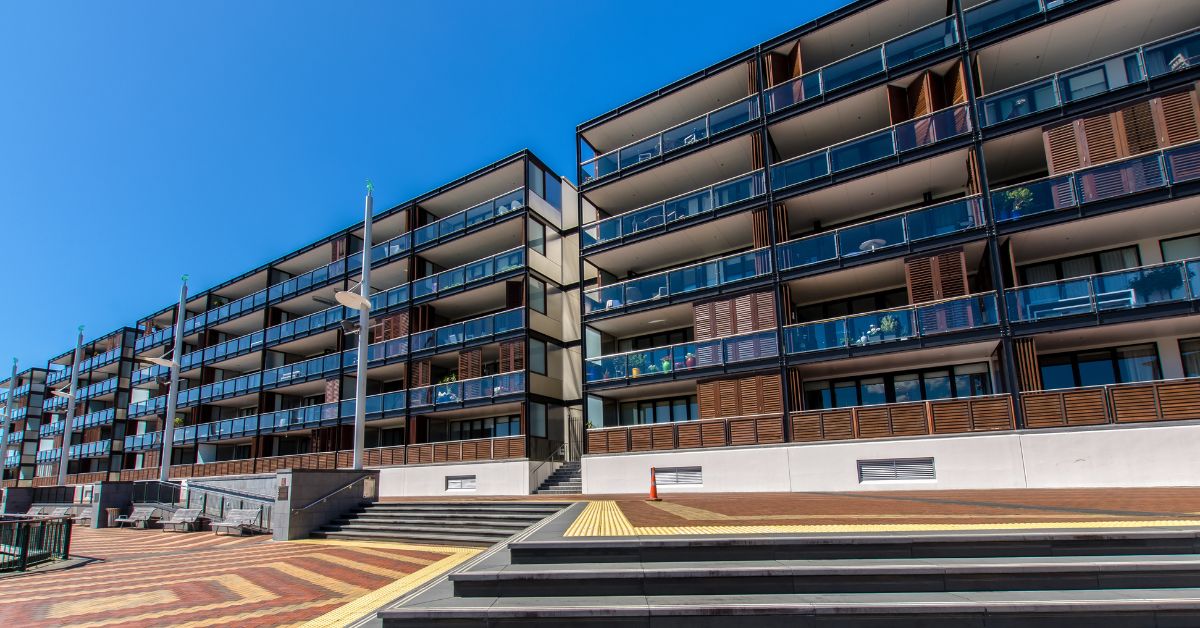Invest with Confidence: A Checklist for Your Property Success

No matter the time of year, as a responsibly rental property owner it is important to keep them in good order. Not only will you attract and retain good tenants, you are also future-proofing your investment.
With warmer and drier conditions in summer, this is a great time of the year to keep your assets in tip-top shape. Here are some jobs to consider during the warmer months:
Security check
With great weather and many holidays, summer is a time when a lot of people travel. The house gets locked up and many of us head away to spend time with friends and family, which means your property could be empty for a couple of weeks. When a home is empty, it can become a potential target for thieves.
Ensure the functionality of all locks on windows and doors, inspect window latches and security lights, and verify the operational status of any security cameras, particularly in apartment buildings. This proactive approach helps safeguard your investment and provides peace of mind during periods of vacancy.
Organise repairs and maintenance
Summer offers an opportune time to organise necessary repairs, maintenance, and refurbishments on your rental property.
Coordinate with your tenants, especially if they plan to be away, to address any pending tasks. This may include painting, re-sanding floors, and fixing issues in bathrooms or kitchens. Engaging in these activities not only enhances the property's condition but also requires proactive communication with tenants to secure necessary permissions for access.
Get onto this early and lock in your tradies ahead of time as they could be on holiday too.
Clean out the gutters
It's essential to clean out the gutters of your rental property before severe weather arrives. The accumulation of leaves, sticks, or debris in gutters poses not only a fire hazard but also the risk of structural blockages that hinder proper drainage.
Neglecting this task may result in more significant problems, including sagging gutters and water damage, requiring costly repairs. Weatherproofing your property through proper gutter maintenance ensures resilience against adverse weather conditions.
Planning for the next year
Given the fluctuations in students' and fixed-term tenancy agreements due to end during the summer, it's prudent to plan for the future.
Evaluate your current tenants' satisfaction and consider renewing agreements where appropriate. Initiate a conversation with your property manager to discuss potential incentives for rental renewals, address any existing issues, and optimise rental terms for both parties.
Summer garden maintenance
Post-winter, your property's garden may require attention. Use the summer months to revitalise the outdoor space by refreshing mulch, weeding garden beds, and adding vibrant flowering plants for a touch of colour.
Additionally, adjust watering system timers, clean exterior lighting and windows, and inspect outdoor structures like decks and barbecues to ensure safety and functionality throughout the summer season.
Insulation
While investing in insulation incurs initial costs, it can potentially lead to higher weekly rents from tenants. Lower electricity bills and increased comfort can make your property more attractive. Consult with your property manager to explore insulation options that align with your property's specifications, maximising long-term benefits.
Check for sub-rent:
With many rental properties rented to students who may head home for the summer, it's essential to confirm whether sub-renting is occurring. Ensure compliance with rental agreements, and if sub-renting is sought, require written approval from the property owner. Understanding and regulating who occupies your investment property is crucial for maintaining control and ensuring compliance to your rental agreements.
Find out your borrowing power
For property owners considering additional investments, understanding your borrowing capacity is paramount. Evaluate factors influencing your borrowing power, such as the strength of your loan application and existing property equity. Utilising equity from current properties can serve as a deposit for future investments.
Get pre-approval
Securing pre-loan approval is a proactive step to streamline the process of acquiring a new investment property. By doing so before property hunting, you gain clarity on your borrowing limits and present yourself as a serious and prepared buyer in the real estate market.
Hire a property manager
While not all property investors opt for property managers, their services can significantly ease the landlord's responsibilities.
Hiring a property manager assists in managing the property, organising repairs, marketing to potential tenants, tenant screening, and rent collection. Although this comes with a fee, the time and cost savings for owners with multiple properties often outweigh the expense.
Select the right mortgage
The mortgage you choose plays a pivotal role in your investment strategy. Many investors consider interest-only loans due to smaller repayments and potential tax deductions. However, it's essential to remember that the principal will eventually need to be paid. Selecting the right mortgage aligns with your financial goals and property investment strategy.
Find the right tenants
Securing the right tenants is fundamental to the long-term success of your property investment. It goes beyond filling vacancies quickly; it involves cultivating a mutually beneficial, long-term relationship.
Thorough tenant screening during the application process helps prevent potential issues and ensures a harmonious landlord-tenant dynamic.
Cash-flow strategy
Regularly conducting a cash-flow analysis is crucial for landlords to maintain financial stability.
A positive cash flow, where property income exceeds ownership costs, ensures financial health. In contrast, a negative cash flow strategy involves anticipating future property value growth to offset annual losses against taxes. A thoughtful cash-flow strategy contributes to the overall success and sustainability of your property investment.
Share


